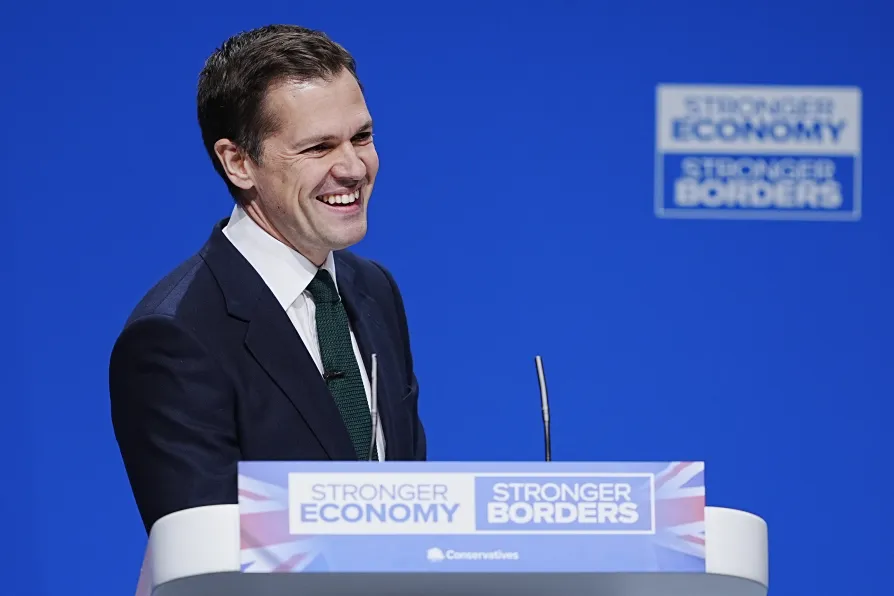
 Shadow justice secretary Robert Jenrick delivers a speech during the Conservative Party Conference at the Manchester Central Convention Complex, October 7, 2025
Shadow justice secretary Robert Jenrick delivers a speech during the Conservative Party Conference at the Manchester Central Convention Complex, October 7, 2025
IT WOULD be understandable to treat the just-concluded Tory Party conference as a non-event. The party is languishing in the opinion polls, having lost significant support since the 2024 general election, already its worst result since 1834.
Leader Kemi Badenoch has made next to no public impression, and few grassroots Conservatives troubled to make the trip to Manchester. Even the once-ubiquitous corporate lobbyists and donors largely stayed away.
This reflects the reality that the party’s core local government base is in freefall, with councillors and activists defecting to Reform on a near-daily basis. There is no evidence that, with 14 years of riotous misgovernance still a fresh memory, the British people will soon entrust the Tories with power again.
So shadow cabinet members often appeared to be going through the motions, announcing policies and initiatives they know they will never be expected to implement.
Yet to conclude that what happened in Manchester is inconsequential risks making a serious mistake. A sinister future was in fact coming into view, marked by a decisive shift in the direction of a right-wing authoritarian regime.
Here, the key figure is shadow justice secretary Robert Jenrick, who has reinvented himself as a neo-Trumpian populist demagogue, having once been a sleazy Cameron-type centrist.
His conference speech was replete with ideas taken from the Donald Trump playbook — or worse. He wants to sack judges with views he finds unacceptable, and appoint pliant toadies in their place. He brands the present attorney-general Lord Hermer as a traitor.
Jenrick calls for an uprising to sweep away the “old order,” invokes the “people’s will,” styles himself a man of “justice and action” and says in relation to the British soldiers that they were “the last generation’s heroes betrayed by this generation’s sellouts,” a formulation redolent of the “stab in the back” myth pervasive in Weimar Germany.
All this on top of his concern that he did not see enough white faces during a brief visit to the Handsworth district of Birmingham, a brazenly racist dog-whistle.
Yet there is a plausible path to power for this dangerous politician. As a first step, we may assume that the Tories will suffer a further humiliating rout in next May’s elections for devolved and local authorities, which all polling points to.
That will surely precipitate the end of Badenoch’s lacklustre leadership, and on the evidence of Manchester and membership surveys, Jenrick will be the Tory grassroots’ choice to replace her.
That in turn would open the way to some form of reconciliation with Reform, be it alliance, pacts or a full merger, since Jenrick and Nigel Farage compete only on how far right to position themselves.
If there is a personal difference, it lies only in the fact that Jenrick desperately wants to be prime minister, while Farage gives every impression of finding the prospect an unattractive diversion from his louche and lucrative lifestyle.
Of course, any Tory-Reform deal risks losing some Conservative voters to the Liberal Democrats. But it must seem the only realistic path back to office for a party that assumes governing is its natural right. It could be good for around 40 per cent of the vote.
The Tories would bring to such a monstrosity an insistence on “fiscal rectitude” — that is, huge cuts to public services and welfare, deficit reduction and tax reductions, sweeping away all Farage’s bluster about economic intervention and more social spending.
The two parties would be united in a savage, authoritarian assault on democracy and civil liberties. That is the future Keir Starmer is sleepwalking Britain towards. The labour movement should not think it could not happen.










